Table of Contents
Finding the best drinks for diabetes can be a balancing act between satisfying your thirst and managing healthy blood sugar levels.
Diet drinks seem to be a helpful tool in maintaining stable glucose levels, but are they truly good for diabetes? Meanwhile, juice might get criticized for its sugar content. Yet, it’s worth exploring the best juice for diabetes without sugar overload.
We will also provide you with the potential risks of energy drinks for diabetics. Let’s also dive into the creative world of guilt-free homemade drinks for diabetics.
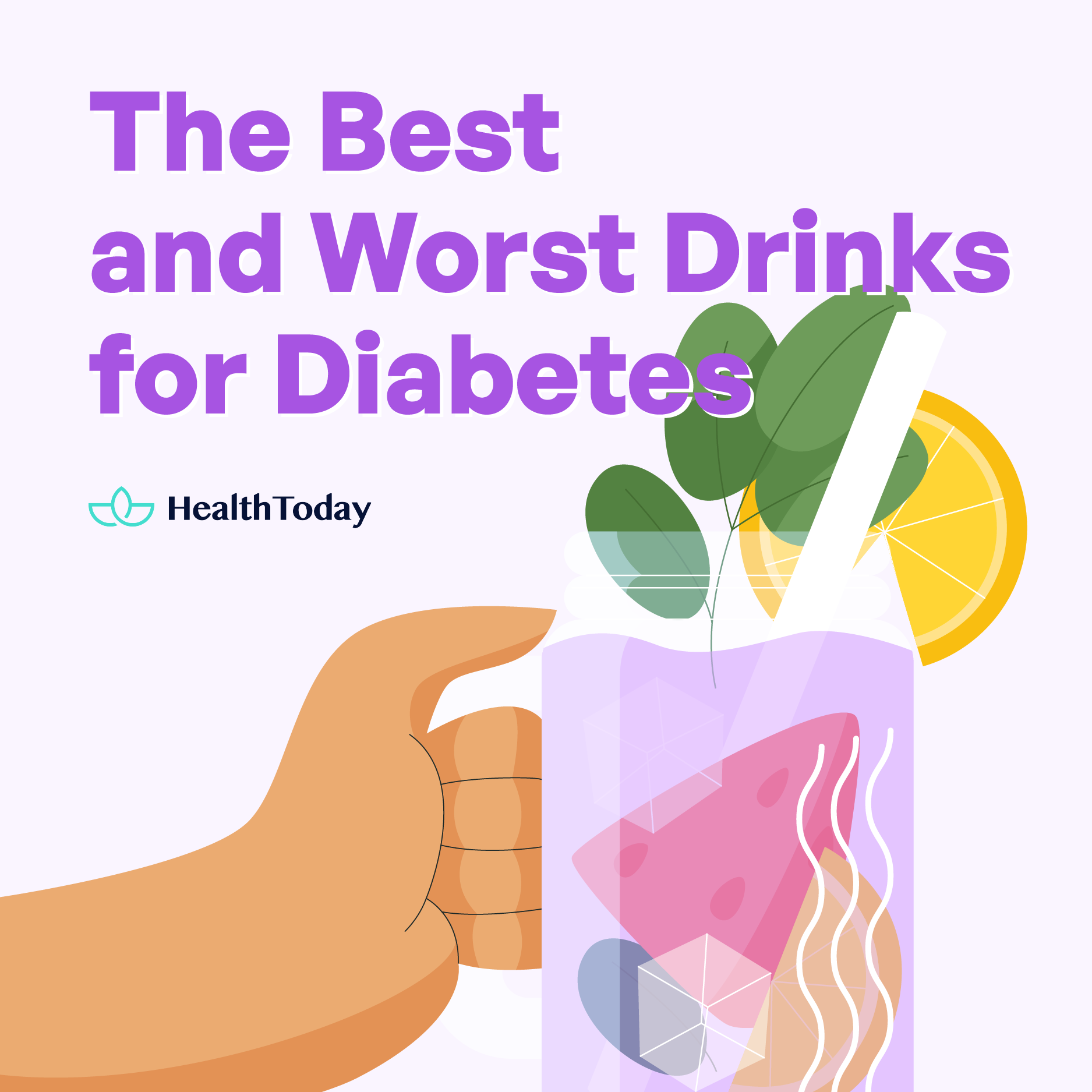
Worst and best drinks for diabetes
Keeping yourself hydrated is a must, whether you have diabetes or not. Insufficient water intake can lead to elevated cortisol levels, negatively affecting blood glucose regulation (1).
Unfortunately, many store-bought beverages are laden with harmful ingredients. So, how can those with diabetes discern between beneficial and detrimental choices?
How much sugar can diabetics have a day?
Before we jump into the drink options, let’s get a handle on what makes a drink suitable for diabetes.
Common sense tells us to pay attention to the sugar (glucose) content. Also, keep an eye on the carbs since even complex carbs can transform into sugar once they enter your bloodstream. Food labels often provide ‘Nutrition Facts’ so you can quickly check for them to know if you should take smaller sips (2).
To stay healthy, the Food and Drug Administration (FDA) suggests limiting added sugar to 50 grams and carbs to 275 grams per day. Meanwhile, the World Health Organization (WHO) suggests aiming for added sugar to make up less than 10 percent of your daily total calories (3, 4, 5).
The American Heart Association (AHA) has its recommendations on added sugar, too, suggesting (6, 7):
- less than 24 grams (or 100 calories) per day for women
- less than 36 grams (or 150 calories) per day for men
Which drinks are safe for diabetics?
When considering a drink’s impact on diabetes, we can’t leave out the glycemic index (GI) value regarding sugar. It’s a ranking system for carb-containing foods, telling us how they affect our blood sugar levels after eating, compared to glucose (8).
Simply put, foods with a high GI value cause quick and sharp spikes in blood sugar. Foods are low-GI if their value is 55 or less, medium-GI (have a more gradual effect) if it lands between 56 and 69, and high-GI if it reaches 70 or higher (8, 9, 10).
Some experts suggest that a low-GI diet can help manage blood sugar and lipid profiles for many people with diabetes. The best part? It might even reduce the need for insulin or diabetic medications (10, 11).
Yet it’s still up for debate. The problem is that the GI test only lasts about two hours, but people with diabetes might need more time for their blood sugar to stabilize. Serving size, food nutrient content, and the lack of information on zero-carb foods make it harder to calculate the GI index and the true impact on an individual’s glucose level (2).
If you want to know how a drink truly affects your blood sugar, the best thing is to try it out yourself. Get yourself a glucometer, do a pre- and post-drinking blood sugar check, and see which ones cause the biggest spikes (2, 8).
Also, don’t rely solely on the GI or sugar highs and lows to pick your food, but consider the energy and nutrients your food provides (8).
Regarding nutrients for diabetes, experts may focus on how foods can affect insulin levels. This hormone helps our organs use glucose from the blood for energy, keeping our blood sugar levels in check (13, 14).
If your blood sugar stays high all the time, it can trigger insulin to act up and result in insulin resistance. This means your muscles, fat, and liver cells don’t respond well to insulin. In turn, your body may try to pump more insulin to meet the need (14).
It’s worrying since insulin does much more than handle glucose. When insulin spikes become regular, they can cause inflammation and increase the risk of liver, heart, kidney, Alzheimer’s diseases, and certain cancers (15).
So, the real deal with diabetes is insulin. A diabetes-friendly drink might give insulin sensitivity a helping hand.
10 good drinks for diabetics
What can diabetics drink besides water? Actually, there are still plenty of healthy beverages for diabetes.
The trick is to watch your calorie intake while savoring them (16).
1. Water
When it comes to the healthiest option, water takes the crown. It has no carbs or calories and a neutral blood sugar effect (17, 18).
You can’t go wrong with water to stay hydrated.
2. Sparkling water
When plain water gets a bit monotonous, give sparkling water a try.
This fizzy drink is a fun and diabetes-friendly choice to switch things up. Try sparkling water without added sugars or sweeteners. That bubbly texture adds a zesty twist to keep you happily hydrated (19).
3. Infused water
For extra flavor, toss in a few slices of lemon, citrus, berries, or cucumbers to give your water a burst of juicy goodness. It’s a great way to amp up the flavor without loading up on sugars or calories per serving (18, 19).
And for a thrilling taste adventure, get playful with herbs and spices. Try a dash of cinnamon, nutmeg, mint, basil, rosemary, cloves, or ginger. There is some evidence some of these may even help drinks to lower blood sugar (20, 21, 22).
4. Regular tea
Tea, with its fresh and grassy taste, comes in all sorts of flavors and types. It’s a zero-calorie sip that can jazz up your drink time (23, 24, 25).
Tea also has some great perks for people with diabetes. Whether it’s green, black, or oolong, it can help manage blood glucose by improving insulin function and fighting oxidative stress (26, 27, 28).
Simply put, catechins in tea can help with glucose metabolism and lower blood sugar (29, 30).
A study with 30,000 diabetics for 11 years found that sipping green tea daily might reduce the risk of various diabetes-related conditions (31).
5. Herbal tea
Herbal tea isn’t technically ‘tea’ because it’s not made from tea plant leaves or buds. Instead, it’s a blend of dried fruits, flowers, spices, or herbs steeped in water for delightful flavors (32).
If you choose fruit-flavored tea bags, you might not need extra sugar. The choices are vast, including lavender, chamomile, fenugreek, stinging nettle, spearmint, hibiscus, yerba maté, and echinacea, as well as all sorts of herbs (33).
Some herbal teas, like cinnamon, ginseng, fenugreek seeds, and flaxseed, can be natural remedies for diabetes. Some might even help with digestion, stress management, and sleep—making them the best drinks for type 2 diabetes (33, 34).
And here’s the icing on the cake: herbal teas are often caffeine-free.
6. Non- or low-fat milk
Just one cup of fat-free milk contains about 310 mg of calcium, which covers around 24 percent of your daily value (35). Skimmed milk has a low GI value, making it a super choice for a diabetic’s protein-recovery drink after exercising (9, 36).
Just a heads up, though—a cup of low-fat milk still has about 12 grams of lactose sugar. So, the safe drinks for diabetics are low-fat and lactose-free milk or yogurt options (19, 35).
Moreover, cow’s milk proteins like casein and whey can slow digestion and improve insulin response, which can be very beneficial for diabetics’ blood sugar levels (37, 38).
Studies also show that upping your dairy intake may lower the risk of developing type 2 diabetes (39, 40).
7. Unsweetened hot chocolate
No doubt about it, hot chocolate is pure comfort and delight for everyone (18). But is chocolate milk good for diabetics? The good news is yes, and it has a low GI value for post-workout recovery (9).
Cocoa powder is a guilt-free choice with fiber and antioxidants. However, most store-bought chocolate milk brands are a sugar overload (41, 42).
To enjoy the rich flavor, whip up your own at home. Mix 1 cup of low-fat milk with a piece of more than 70 percent dark chocolate, and melt them all in a cooker.
8. 100 percent vegetable juice
There’s a whole world of juices and blends for an energy boost (19). But watch out for fruit juice, which contains natural sugars. That’s why vegetable juice is a smart choice with fewer carbs (17).
And don’t worry about the extra calories; veggie juice serves up a good dose of vitamins, minerals, and antioxidants—all good news for people with diabetes.
Yet keep it in check—even drinks with low sugar, like veggie juice, should be enjoyed in moderation by people with diabetes. For the best deal, go for options with lower natural sugars.
9. Apple cider vinegar
Apple cider vinegar, or ACV, is on the list of sugar-free drinks for diabetics (43). You can easily find ACV at the store and sprinkle it into your meals. It has some beneficial effects for diabetes thanks to acetic and chlorogenic acids (44).
Vinegar can make game-changing drinks for type 2 diabetes, as it may lower insulin and blood sugar levels after meals (45). Make sure to always dilute ACV by mixing 1 tsp of ACV with xx water.
Many believe that it’s better to use ACV than just plain vinegar. Yet there’s little research comparing the two (44, 46).
10. Kombucha
In Eastern Asia, tea is the traditional way to kickstart the day. And kombucha is one of those creative and healthy options—it’s a fermented tea packed with antioxidants and probiotics that can boost insulin sensitivity (47).
They create kombucha by fermenting sweetened tea with a mix of bacteria and yeast. The sugar transforms into organic and amino acids, leaving only a small amount in your finished kombucha (48, 49).
Studies have found that kombucha can lower blood glucose levels and enhance lipid profiles in diabetic animals (50, 51). Yet more research is needed to know how it affects humans.
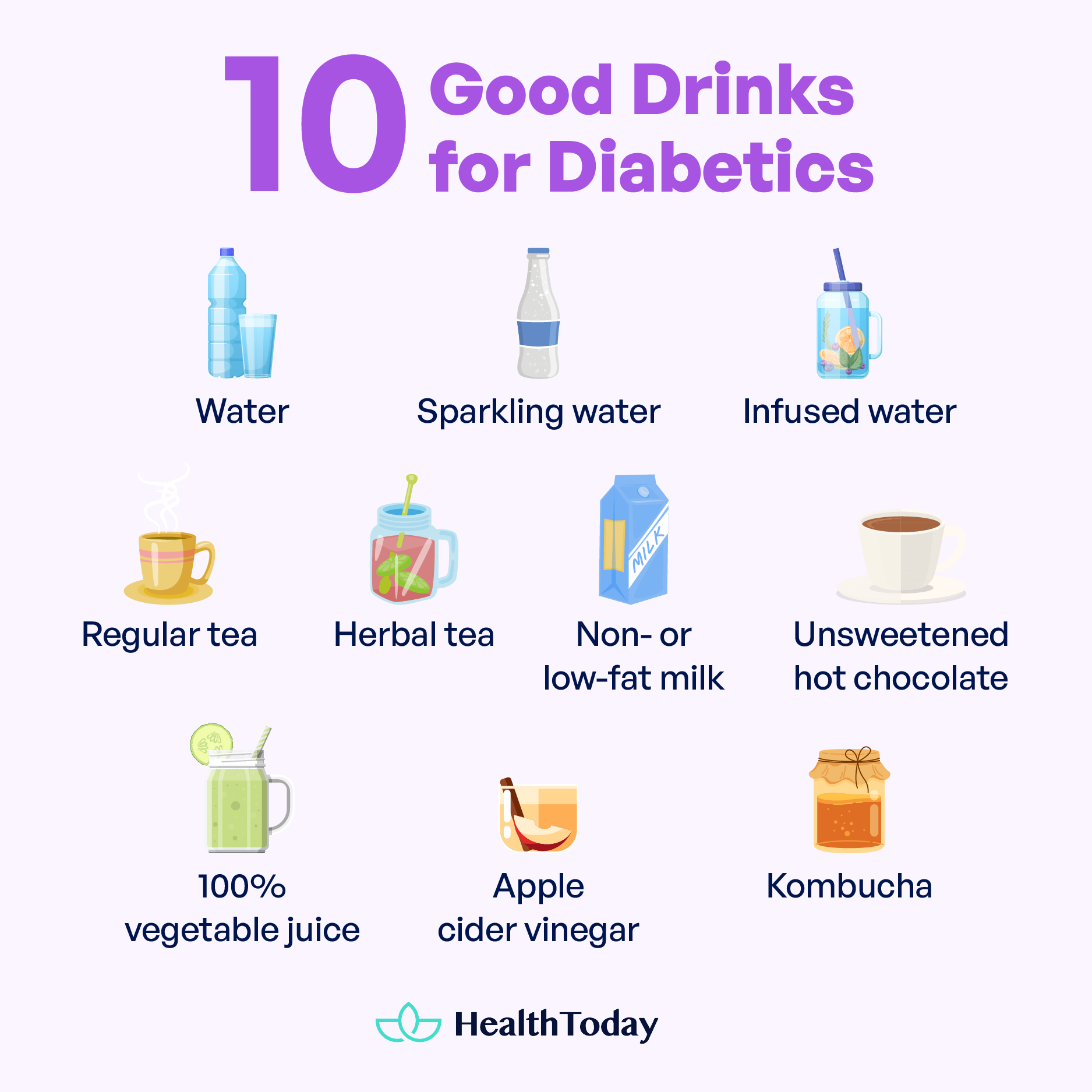
Worst drinks that diabetics should avoid
Beware of sugar-loaded beverages—they’re the major source of added sugar in your diet (18, 19). They can spike your blood sugar and pack in loads of calories per serving, a no-no for diabetes (17, 52).
Added sugars have many tricky names, like sucrose, fructose, lactose, glucose, maltose, dextrose, fruit juice concentrates, and fruit nectars (like agave nectar). And don’t forget honey, brown sugar, cane juice, corn syrup, malt syrup, maple syrup, and molasses (18, 19, 53).
If you have diabetes, it’s best to avoid these drinks.
1. Regular soda
Soda for diabetes—it’s the worst choice you can make at any store. One 16-oz serving contains a massive 155 kcal and 40‒50 grams of sugar (19, 54).
Simply put, that’s like having 10‒13 teaspoons of sugar in one go. It’s double the amount of sugar the ADA recommends (7). Save yourself by staying away from this sugary disaster.
2. Fruit punch
Fruit drinks add up to 11 percent of added sugars in the US (6).
The trouble with them is that the ones in supermarkets are loaded with added sugars and barely any natural fruit juice. Get this—a single serving can contain 40 grams of sugar and 186 kcal (17, 19).
Be careful and avoid these unhealthy food traps. Instead, opt for some vegetable juice.
3. Sweetened tea and coffee
Sweetened iced teas or coffees contain sugar levels almost as bad as soda or fruit juice (19). More concerning, flavored coffee drinks like frappuccinos or cappuccinos may contain unhealthy fats.
The combo of caffeine and sugar in these drinks can shoot up blood sugar and impair insulin sensitivity, which is confirmed by many clinical trials (36, 55).
Instead, try adding a splash of lemon juice for some zingy flavor. If you’re craving creaminess, go for plain, low-fat, or fat-free milk. Better yet, try unsweetened milk alternatives like soy, oat, cashew, hazelnut, or almond milk beverages (18, 19).
4. Sweetened smoothies and milkshakes
Smoothies you can buy in-store are often loaded with sweetened fruit juices, syrups, or added sugars.
Milkshakes are often made with sugary ice creams and flavored syrups, which add up the amount of carbs. It’s best to make your own milkshake at home. Try also soy, rice, or almond milk (17).
Note that non-dairy milk alternatives, like almond milk, may contain extra sweeteners (yet not lactose) and flavors. They also usually don’t have the diabetes-friendly protein (whey) in cow’s milk (56).
5. Energy and sports drinks
Sports drinks are made to boost athletic performance and replace fluids and electrolytes during and after exercise. But be cautious: they might look healthy, but they often hide tons of calories and added sugars (19, 57).
Energy drinks are among the worst hydration drinks for diabetics, no matter what brands may claim, like ‘decrease fatigue’ or ‘enhance concentration.’
One serving can have 54-67 grams of sugar, even more than regular sodas. And high caffeine content in energy drinks can be a real danger (36, 58).
For most people, especially those with diabetes, drinking water is better for rehydrating than drinking sports drinks (16).
6. Alcoholic beverages
Whether it’s sugary or not, alcoholic beverages for diabetes are not a good idea (59). A beer or a glass of wine usually packs around 100 to 150 calories (60).
Some might think alcohol is good for lowering blood sugar. Yet, in diabetes, it can cause it to drop too low (hypoglycemia). And if you don’t drink, it’s best not to start since it can bring other health concerns like high blood pressure and heart issues (60, 61, 62).
Moderate alcohol consumption means up to 1 drink per day for women and 2 for men. And here’s the scoop – one drink equals 1 ½ ounces of liquor, 12 ounces of beer, or 5 ounces of wine (63).
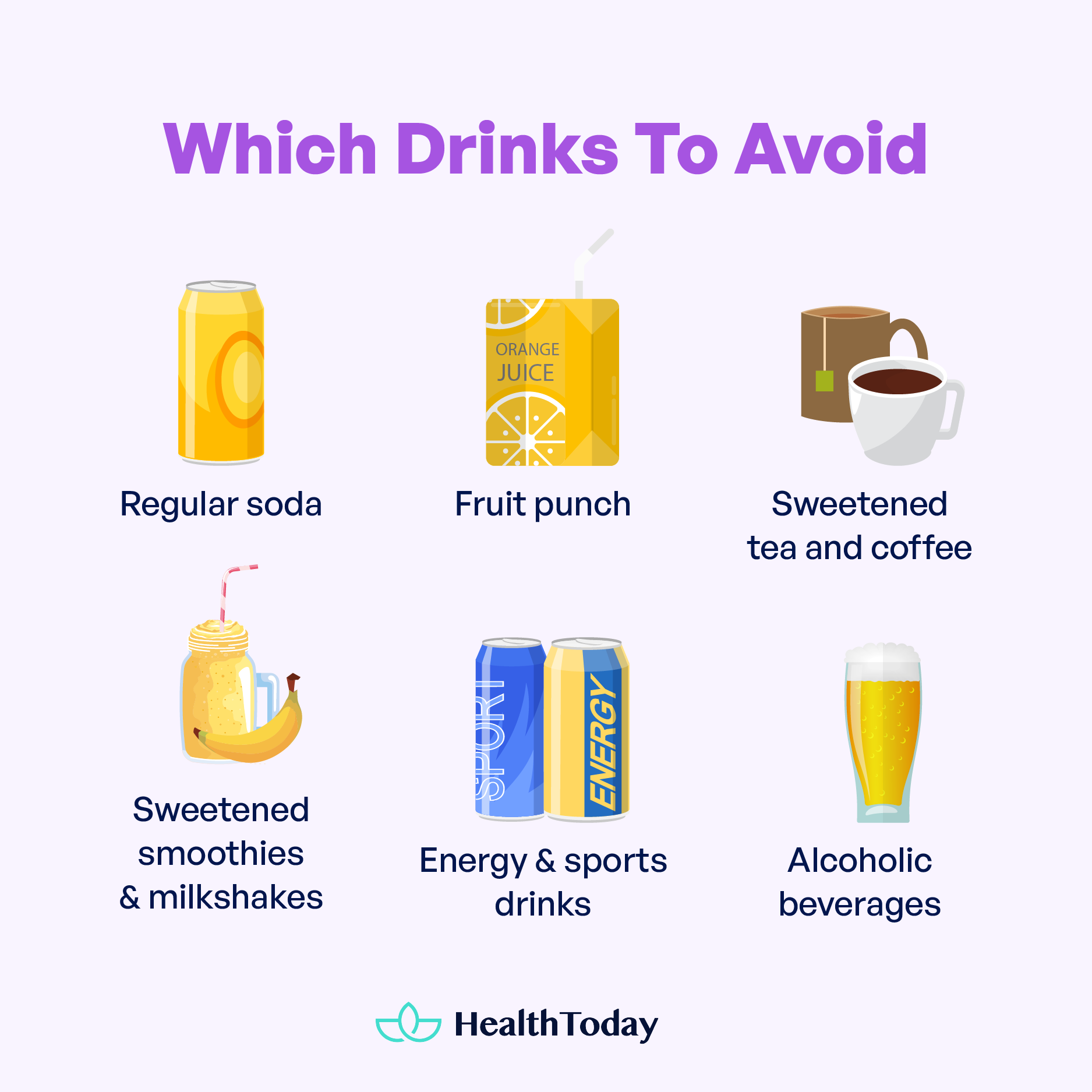
When choosing hydration drinks for diabetics, consider their effect on your blood sugar and insulin levels. Top picks include zero-sugar options like water, tea, or vinegar. If you’re looking for a sweeter treat, go for skimmed milk, veggie juice, or kombucha. Yet, any sweetened or alcoholic drinks are not safe drinks for diabetics.

Juice for diabetes: What you can and can’t drink
Sugar-free juice for diabetes doesn’t really exist. Juice always has more calories and carbs than zero-calorie options. However, some juices still contain essential vitamins and minerals, making them not all bad for diabetes (17).
So, which juice is good for diabetes? Let’s dig in and explore.
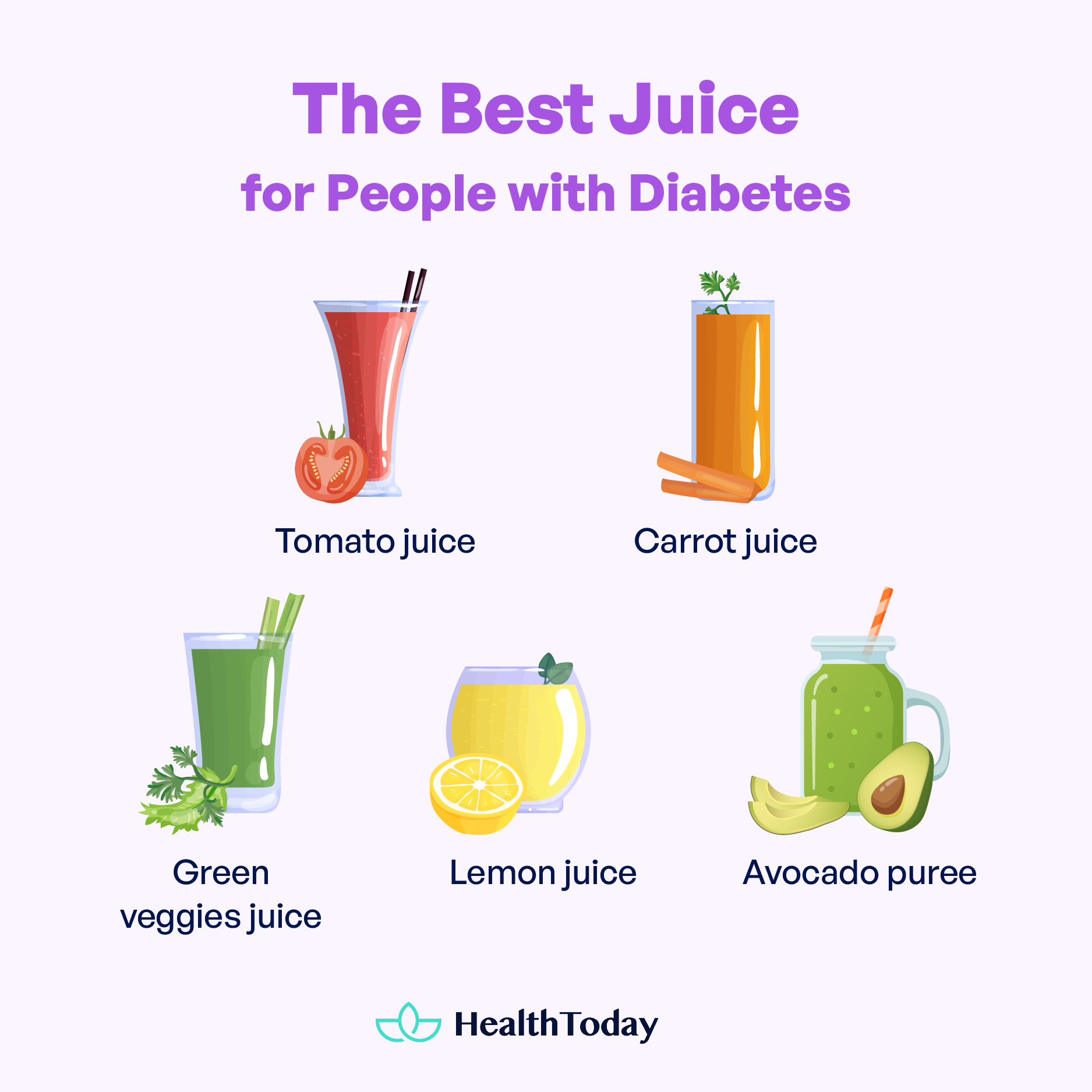

The best juice for diabetes
Fresh fruits are a healthy vitamin boost for people with diabetes (40). Yet fruit juice is not recommended as juicing strips off the fiber. Consequently, the natural sugar in fruit can raise blood sugar quickly (64).
Research also discovered that solid and thick foods can make you feel less hungry than liquid and runny foods. So the better alternative is to eat actual fruit to satisfy a craving (65).
Fortunately, there are thousands of candidates for juice, some of which are low-sugar juices for diabetics.
1. Tomato juice
Sipping on tomato juice can be a tasty way to fight inflammation, thanks to its lycopene content (66). Reduced inflammation might also lower the risk of diabetes complications.
Having a glass of tomato juice before meals could also help keep your blood sugar in line (10). Yet note that even ‘100 percent tomato juice’ products pack around 10 grams of carbs per cup (67). So why not make your own best tomato juice for diabetics with no sugar added?
2. Carrot juice
With a low glycemic index of 39, carrots are a great treat when your sweet tooth strikes (9). Half a cup of carrots gives you half your daily vitamin A needs. Its carotenoids may also help prevent diabetes and reduce insulin resistance (68, 69).
Carotenoids can improve insulin sensitivity and protect against the long-term harmful effects of diabetes, such as eye abnormalities (68).
3. Green veggie juice
Spinach, celery, collards, kale, and other dark green veggies are high in vitamins and minerals. These leafy wonders are also low in calories and carbs and are superfoods for diabetes (40).
These green goodies also contain antioxidants that can help fight inflammation (10). If the juice flavor is not hitting the spot, toss in some berries, unsweetened milk, nuts, or seeds to make a satisfying diabetes-friendly smoothie.
4. Lemon juice
Unsweetened lemonade is the way to go when you seek low-sugar juices for diabetics. Lemons are also a good source of vitamin C and antioxidants (70).
Beat the summer heat with homemade lemonade. Squeeze a lemon, and you have a drink with only 1 gram of sugar. Also, watch out for those lemonade powders with added sugars (19, 70).
5. Avocado puree
A cup of avocado puree provides just 1.52 grams of sugar but a generous 15.4 grams of fiber, making it a safe drink for diabetics (71). But don’t go overboard: the official serving size of an avocado is one-fifth (30 grams) of the fruit (72).
Avocados are a unique fruit, mostly made up of monounsaturated fatty acids (71 percent), or MUFA, which may help improve insulin sensitivity and blood fat profile (73, 74, 75).
Can a diabetic drink orange juice?
Orange juice may be yummy, but it comes with a significant sugar load—a raw cup has around 21 grams (10 percent DV). The GI of oranges is 46, but the juice shoots up to 67. Therefore, grab a whole orange for a healthier option, as the pulp also contains fiber (76, 77, 78).
If you still want to drink orange juice, try making it yourself and keep it in moderation.
Is V8 juice good for diabetics?
V8 juice stands out with its special blend of veggies, which gives it a unique and tasty twist. These veggies can be tomatoes, carrots, celery, beets, parsley, lettuce, watercress, and spinach—all good for diabetes (40, 79).
But be mindful that a 240 mL serving can have around 7‒18 grams of sugar and just 0‒2 grams of fiber. While it offers some vitamins and minerals, it’s no replacement for whole fruits and veggies (79, 80).
Some V8 types may have extra sodium for flavor, which may not be great for specific health conditions (81). V8 juice products can be good beverages for diabetes in moderation. But homemade juices and smoothies are usually the healthier and budget-friendly way to go.
Most store-bought fruit juices aren’t great for diabetes. To curb sweet cravings, go for carrot or veggie smoothies instead. Lemon and tomato juice are also low-sugar juices for diabetics. But remember, popular ‘healthy’ juices like orange or V8 should be savored in moderation.







Diet drinks and diabetes: Truth behind the good name
You may have heard diet iced tea, diet juice, and diet soda are diabetes-friendly options. They contain no sugar, no calories, and a touch of sodium (82).
They won’t spike your blood sugar, but are they as diabetes-friendly as they claim to be?
Is zero-sugar soda good for diabetics?
The sweet flavor of sugar-free soda for diabetics comes from artificial sweeteners. They are much sweeter than table sugar (up to 20,000 times). Because our bodies can’t absorb them, they won’t spike your blood sugar levels (83).
However, consuming diet soda can result in your body poorly controlling blood sugar levels and resulting in an upsurge in your A1c levels (84).
This can be attributable to their ability to interfere with the microorganisms in your gut. Your insulin level will, in effect, elevate, thus triggering insulin resistance in the long run (85).
Studies even show a 38‒68 percent increased risk of diabetes from diet soda compared to people who did not consume diet soda (86).
Besides the sugar substitutes, soda packs a caffeine punch, which isn’t great for diabetes and can even become addictive. Even a small serving may pack around 24 milligrams of caffeine. If you try to quit, you might feel sick and have a hard time focusing. That’s what they call ‘caffeine withdrawal’ (36, 55).
Many other large-scale, long-term studies have found that sipping on diet soda can increase the risk of some serious health problems (86, 87, 88):
- high blood pressure
- larger waist size
- depression
- Alzheimer’s disease
- heart problems, including heart attack and stroke
- kidney function decline
Soda and diabetes definitely don’t mix well. But what about sugar-free juice for diabetes? They also contain artificial sweeteners, so skipping them might be a good idea.
Can diabetics drink ginger ale?
Ginger ale might seem refreshing, but for diabetes, it’s a total sugar bomb with 60 grams of carbs in a 20-ounce bottle (89, 90). That’s a big no-no if you want to keep your blood sugar in check.
Remember the preservatives and additives lurking there are not good for your overall health (90).
But don’t worry. There’s a better way to enjoy that zingy ginger taste without the insulin spike. Just grab some seltzer water and grate in some fresh ginger. Now that’s a diabetes-friendly ginger fix!
Diet soda for diabetics seems to be a safe bet since it’s sugar-free. But it may hinder glucose control with all those controversial sweeteners. Make your diabetes-friendly version with sparkling water and your favorite herbs and spices.







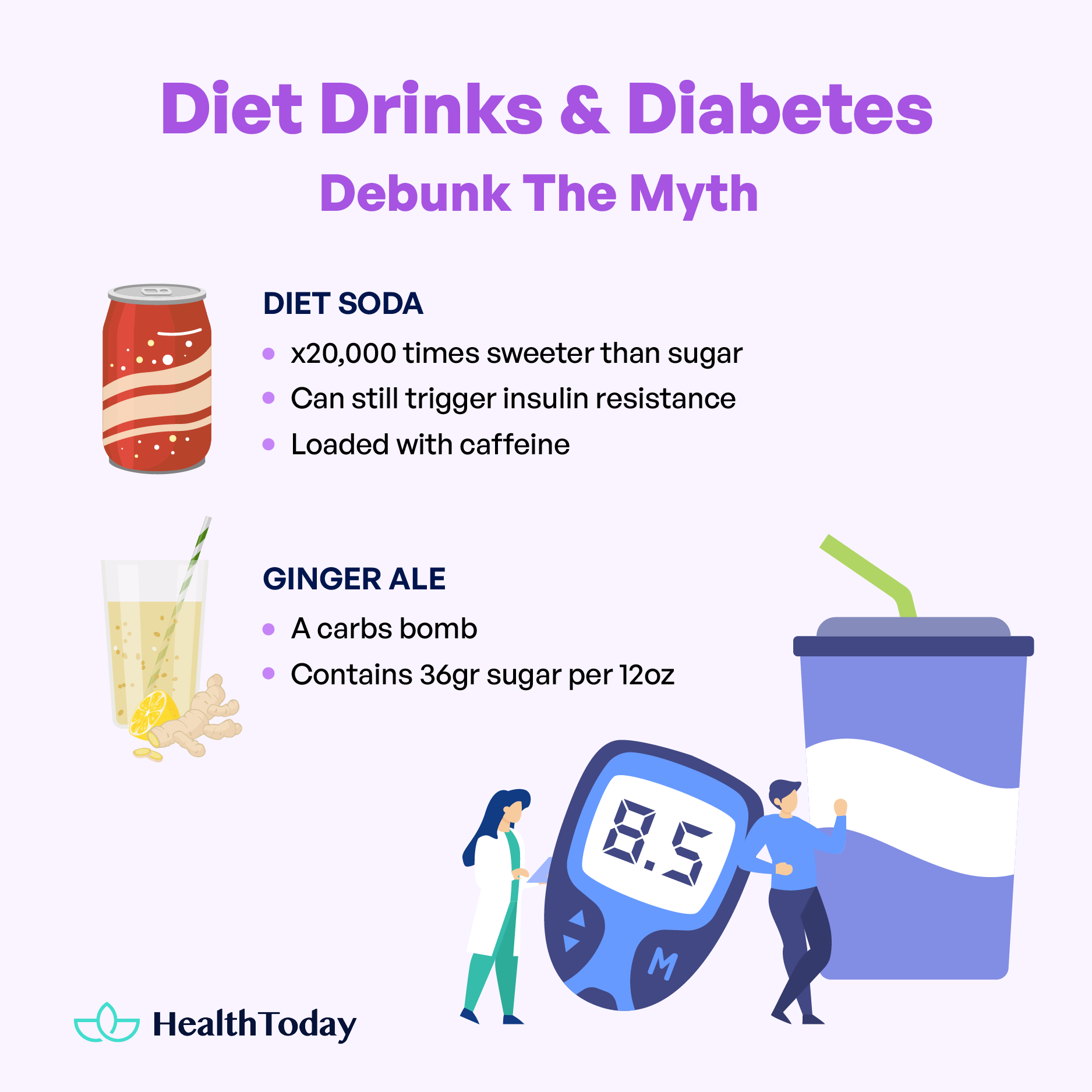

What can diabetics drink for hydration?
Dehydration happens when your body loses more water than it takes in. If you become severely dehydrated, you may feel tired, have trouble performing sports, and be at risk for heat-related issues and electrolyte imbalances (36).
More importantly, dehydration can trigger high blood sugar. You may notice tell-tale signs such as headaches, dry skin, and a weak, speedy heartbeat (91).
Does drinking water help with diabetes?
There is no need to ask “Is water good for diabetics?” as it’s hard to argue with water. It contains no calories, sugar, or controversial sweeteners.
A recent study also revealed that drinking more water was linked to a 6 percent lower risk of type 2 diabetes (92). The effect can be much better if you swap those sugary drinks with plain water.
Moreover, you can reverse any dehydration symptoms with just water. It helps regulate body temperature, aids digestion, and promotes overall well-being (16, 36).
Drinking water for diabetes can be much easier with these simple tips (16, 19, 57):
- Make it convenient. Grab yourself a reusable water bottle you can carry wherever you go.
- Some smart water bottles have times and amounts to keep you sipping. You’ll soon get into the habit of sipping it without realizing it.
- Download a drinking reminder app to keep you on track.
- Make it a habit to serve water with your food.
- Choose water when eating out. You’ll save money and cut down on unnecessary calories.
Is Hint water good for Diabetics?
Hint Water is a brand of flavored water known for its subtle flavor from fruits, herbs, or spices. The result is a refreshing beverage with a hint of natural flavor without any added junk.
No preservatives, sodium, sweeteners, carbs, or calories—Hint water can be a great touch of taste for diabetics (93).
And if you’re a fan of bubbles, LaCroix is another great flavored water for diabetics. It’s sparkling water infused with natural flavors. However, keep an eye out for other brands, as some of their fitness waters may have artificial sweeteners.
It’s always best to infuse the water yourself and enjoy a truly revitalizing drink.
Water is always the best hydration drink for diabetics. You can also infuse your water without adding calories, yet be careful when buying flavored water. Check their label for any sweeteners.







Energy drinks for diabetics: Are they healthy?
When you’re active, staying hydrated is key to peak performance, injury prevention, and faster recovery. But energy drinks have many bad ingredients (58, 94).
They can sneakily pile up your carb and legal stimulant intake, no matter what the label says (19, 58). So the answer to “Can diabetics drink energy drinks?” is definitely no.
Energy drinks can pack a serious caffeine punch. Still, the exact amount listed on the label or online is not always available (36, 55).
Some cans or bottles of energy drinks can contain 500 mg of caffeine—that’s like having 14 cans of soda! This is enough caffeine to be dangerous, as the recommended amount is no more than 400 mg/kg per day (36).
Watch out for ‘guarana’ on the ingredients list—it’s a caffeine source, with 40 mg per gram. You might spot other stimulants supposed to ‘improve performance’ (36, 58).
Do you really need that ‘nutrient boost’ they advertise?
They might add some B vitamins, vitamin C, calcium, potassium, and magnesium, but you can easily find them in veggies. Even athletes usually don’t need more electrolytes during or after short workouts (36).
Energy drink ads may make a big deal about certain amino acids having extra powers. Still, no scientific proof from proper clinical trials supports those claims (36).
Unfortunately, in 2011, one out of every ten emergency department visits due to energy drink consumption needed hospitalization (58).
In fact, we can make our own the best energy drink for diabetics. If you still need a quick energy boost, there are healthier alternatives (16, 19):
- Plain or unsweetened flavored water: Dehydration can cause low energy.
- Unsweetened tea: Many tea flavors can be enjoyed to boost alertness. Just keep an eye on your total caffeine intake.
- 100 percent fruit or vegetable juice: You’ll find many veggie varieties for a quick pick-me-up.
- Whole fruit: A good snack can be more than energizing. Yet, watch out for the sugar content.
Skip those energy drinks—they’re loaded with sugar and caffeine, which is definitely not good for diabetes. And even if some brands promise extra benefits with added minerals and vitamins, you can get those from eating delicious veggies.







Homemade drinks to lower blood sugar
Are you missing those sweet smoothies and juices on a diabetes diet? It’s time to become a mixologist in your own kitchen!
Our homemade recipes combine herbs and spices for a signature flavor. Herbs and spices have also been used for ages to help with diabetes and its complications (22).
With these recipes, you’ll get the flavors you love without the added sugars or sweeteners. It’s all-natural goodness in every sip.
1. Cinnamon Spice Tea
All you need is your favorite tea bag and a comforting cinnamon stick. Brew it with a cup of water, and you have a delightful treat.
Cinnamon is a secret weapon against high blood sugar. It’s been shown to improve insulin sensitivity and lower fasting blood sugar levels. This effect is better than other spices like ginger, cardamom, and saffron (95, 96).
You can also experiment with other spices like star anise or lemongrass for a unique flavor that supports your blood sugar control (22).
2. Ginger Turmeric Lemonade
Turmeric and ginger have long been used in traditional Chinese medicine to tackle diabetes. Turmeric helps regulate blood glucose, while ginger works to control insulin levels (34, 97, 98). Together, they make a winning combo!
In this zingy drink, simply grate a 1-inch piece of fresh ginger, sprinkle in a teaspoon of ground turmeric, and squeeze in two tablespoons of lemon juice.
Mix everything together in a pitcher with two cups of water. Let it sit in the fridge for at least 30 minutes to allow the flavors to meld. Then, serve over ice for that extra chill.
3. Cardamom Green Tea
Start by boiling a cup of water, then add 2-3 crushed cardamom pods. Let the flavors infuse for a minute or two. Then, pour them over your green tea bag and let them steep for a few more minutes.
Aside from its delightful sweetness, cardamom contains beneficial oils that can help with insulin resistance and even diabetes complications. Therefore, it can be used to make homemade drinks for diabetics (99).
Cardamom smells sweet and has a mild, strong taste. Yet it is expensive (100).
4. Black Pepper and Lemon Water
Piperine from black pepper in this recipe may help you improve your insulin sensitivity (101).
Just add 1/4 teaspoon of black pepper powder and the juice of half a lemon to a cup of warm water. Give it a good stir, and you have a refreshing and tangy drink to enjoy.
But if black pepper’s bold flavor isn’t your cup of tea, try using some holy basil (Tulsi) instead. It is a sacred Indian plant traditionally believed to be great for diabetes.
5. Nutmeg Almond Milk
Simply add nutmeg to your drink for a rich and creamy flavor without guilt while lowering your blood sugar. It makes true homemade drinks for diabetics.
With more than 96 anti-diabetic compounds, this nutty spice may reduce blood glucose levels and fight oxidative stress (22, 102).
Combine 1/4 teaspoon of ground nutmeg in a blender with 1 cup of unsweetened almond milk. Blend until smooth and serve chilled.
Not a fan of nutmeg? Fenugreek or cumin can be alternative spices to suit your taste (22).
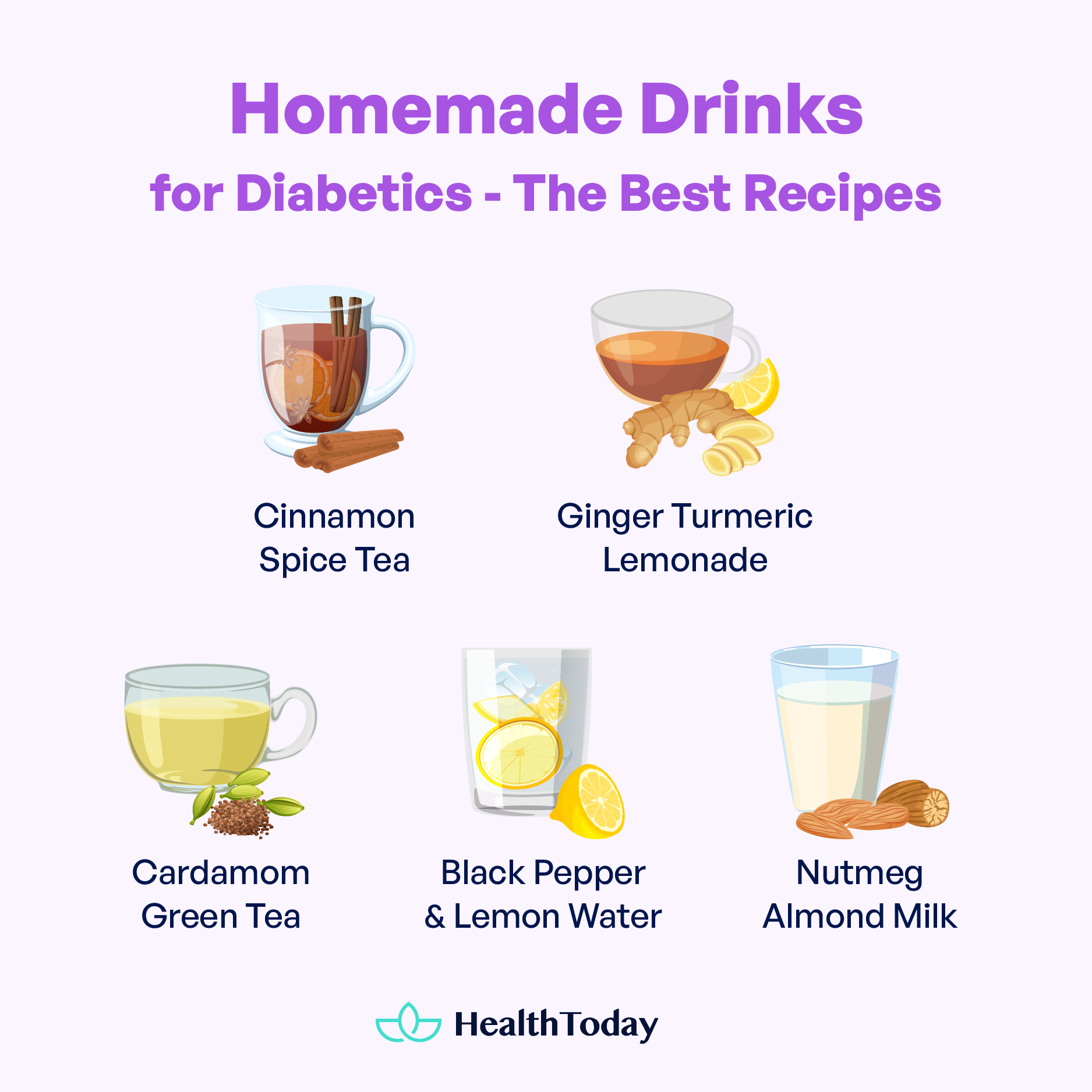








Is tequila bad for diabetics?
Alcohol can lower your blood sugar, which seems beneficial for diabetes. Yet it’s not a guarantee. If you don’t already drink, it’s best not to begin, as it can lead to hypoglycemia (low blood sugar episodes). Also, if you want some tequila or other hard alcohol, have a meal before hitting the party (59, 60).
Can diabetics drink flavored sparkling water?
Flavored sparkling water can make smart hydration drinks for diabetics with no sugar hassle. But be savvy when shopping—check those labels and go for those without sneaky added sugars or sweeteners (19).
Can a diabetic drink lemonade?
Can diabetics drink apple cider juice?
If you’re a fan of apple juice, the apple cider variety is the best apple juice for diabetics. It is a safe bet for diabetics. The glycemic index (GI) value for apples is 36, and 41 for filtered apple juice, which is quite low. So, apple cider juice may not cause rapid blood sugar spikes (9).
Apple cider, which is unfiltered and has some extra pulp, has extra health benefits, such as polyphenols, which may have some antioxidant properties (104).
Since it’s fruit juice, diabetics should just enjoy it once in a while.
Which drinks are low in sugar?
Sugar-free sips are the way to go! Water is the clear winner; sparkling or infused water can add variety. If you need a little pick-me-up, try tea or coffee, but remember to keep an eye on the caffeine (keep it less than 400 mg a day).
Unsweetened low-fat or fat-free milk or milk alternatives are good for a rich and creamy twist (19, 36).
Summary
Diabetes doesn’t mean you have to give up on enjoying drinks. Yet some beverages, like fruit juice, sodas, and energy drinks, can cause a speedy rise in your blood sugar levels. For personalized advice on your drink choice, consult your doctor.
Water, sparkling water, and infused water are the best drinks for diabetes whenever they are available. Tea, low-fat milk, or kombucha can also be on your list. Remember to sip smartly.
It’s important to keep track of the carbohydrates in any drink and be cautious with alcoholic and diet drinks. The best juice for diabetes can be avocado, lemon, carrot, and tomato juice. Juice from green veggies is also diabetes-friendly.
It’s always good to make homemade drinks for diabetics. It’s a surefire way to control what goes into your drinks.





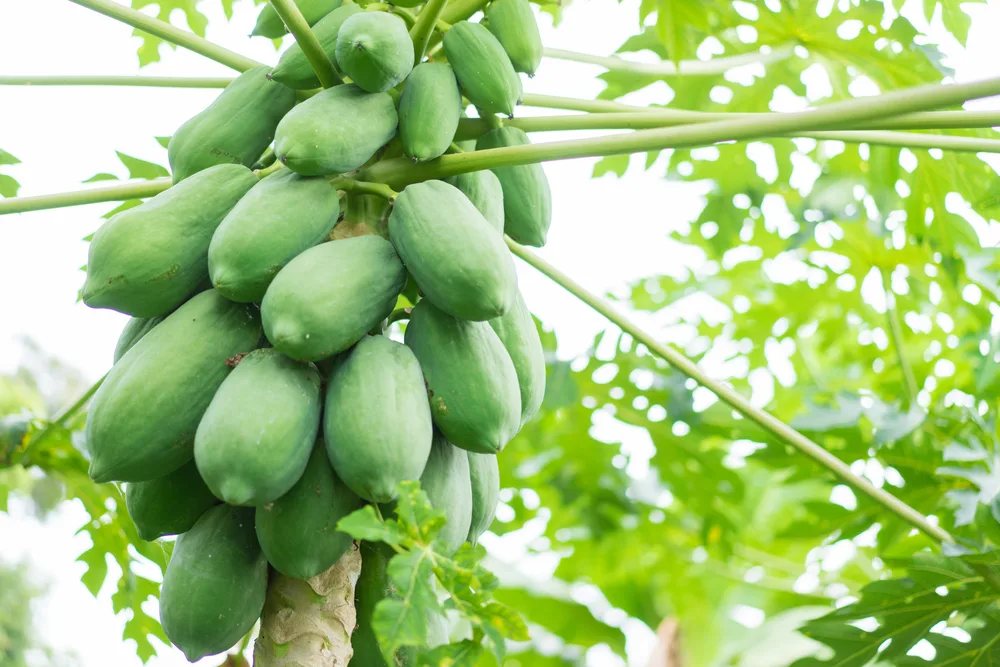

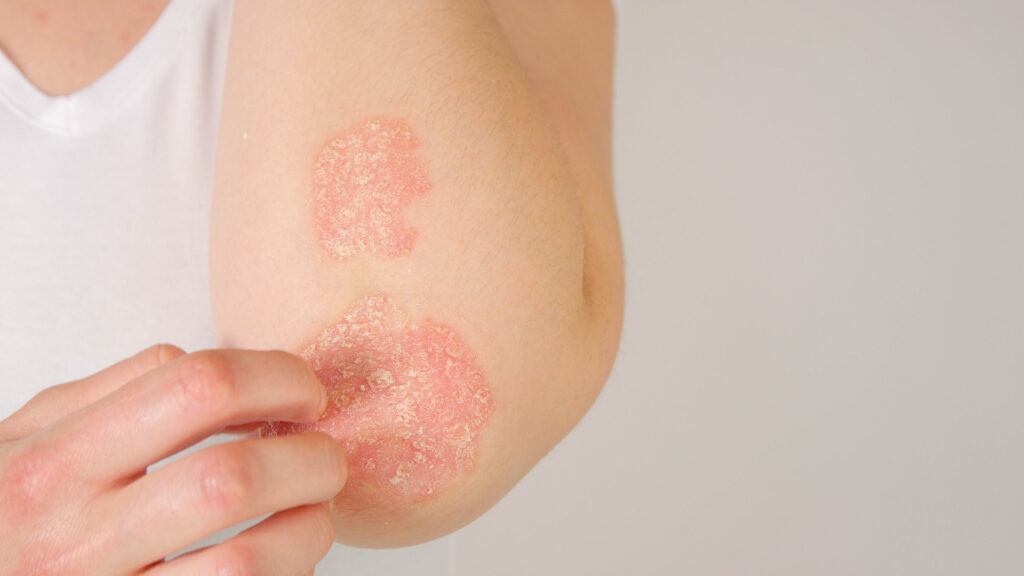




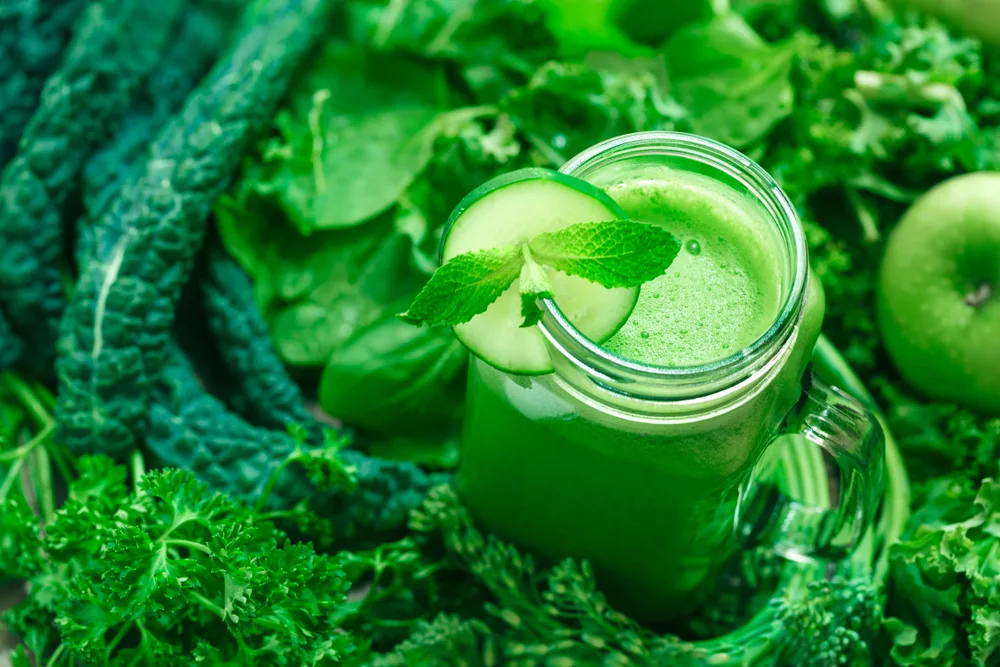
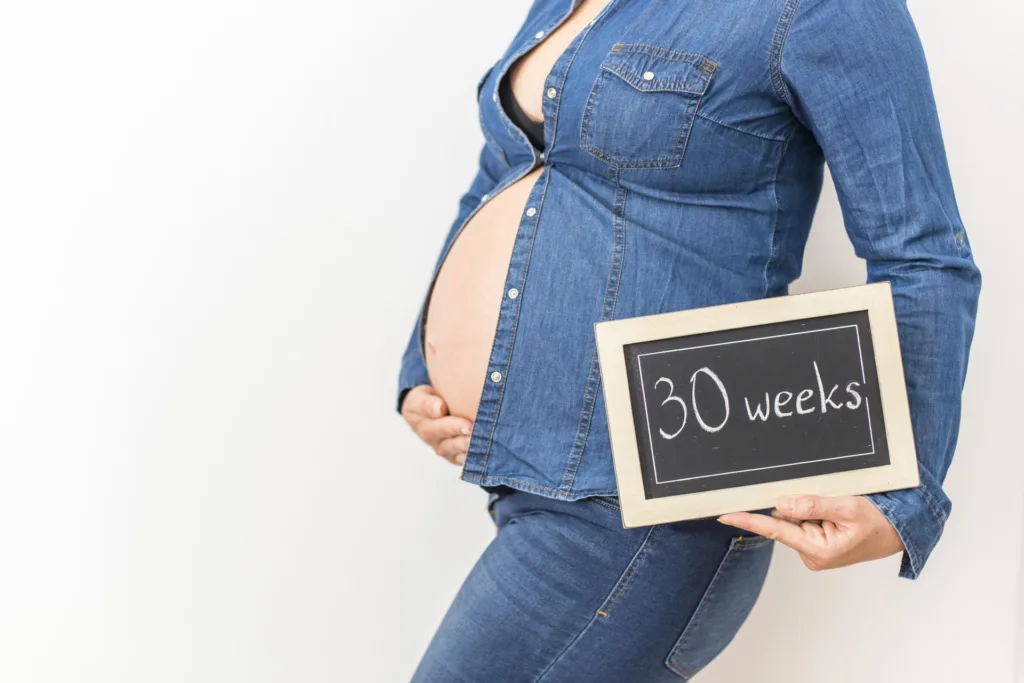
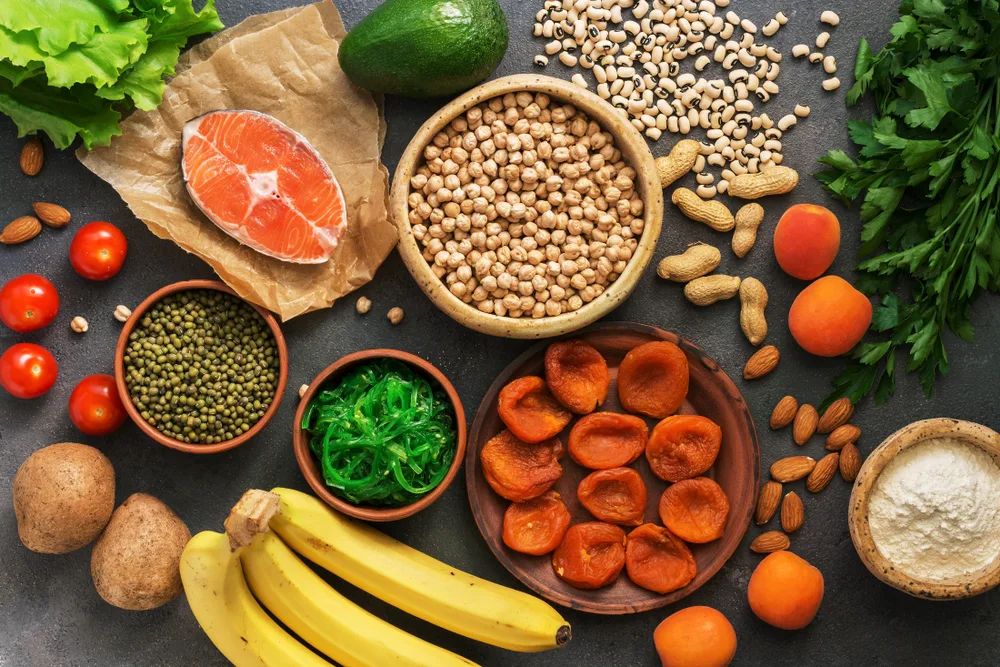
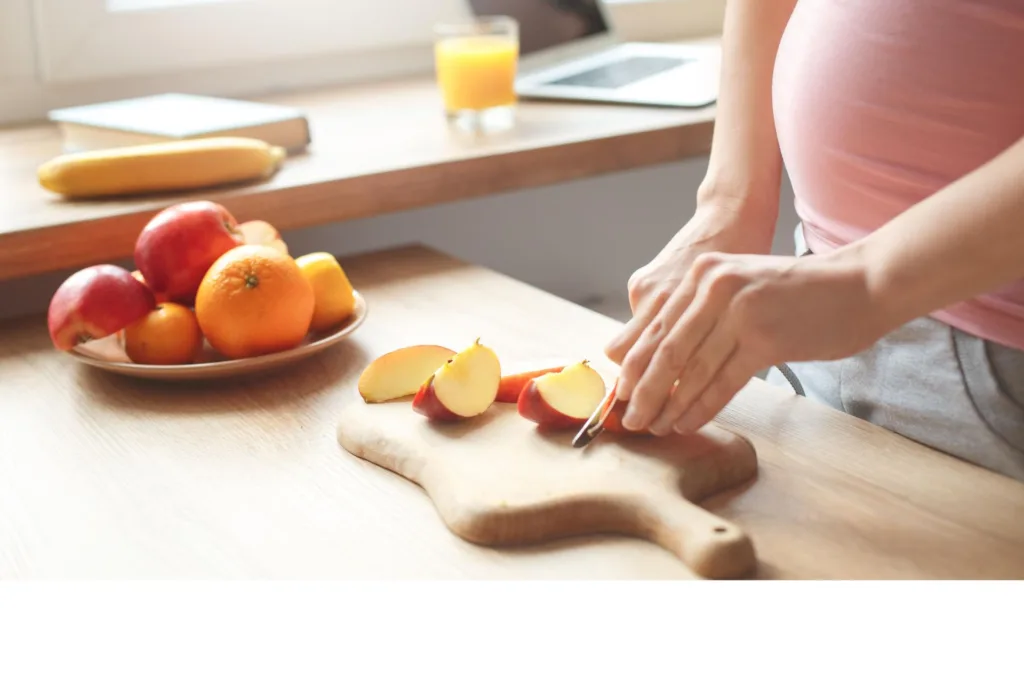
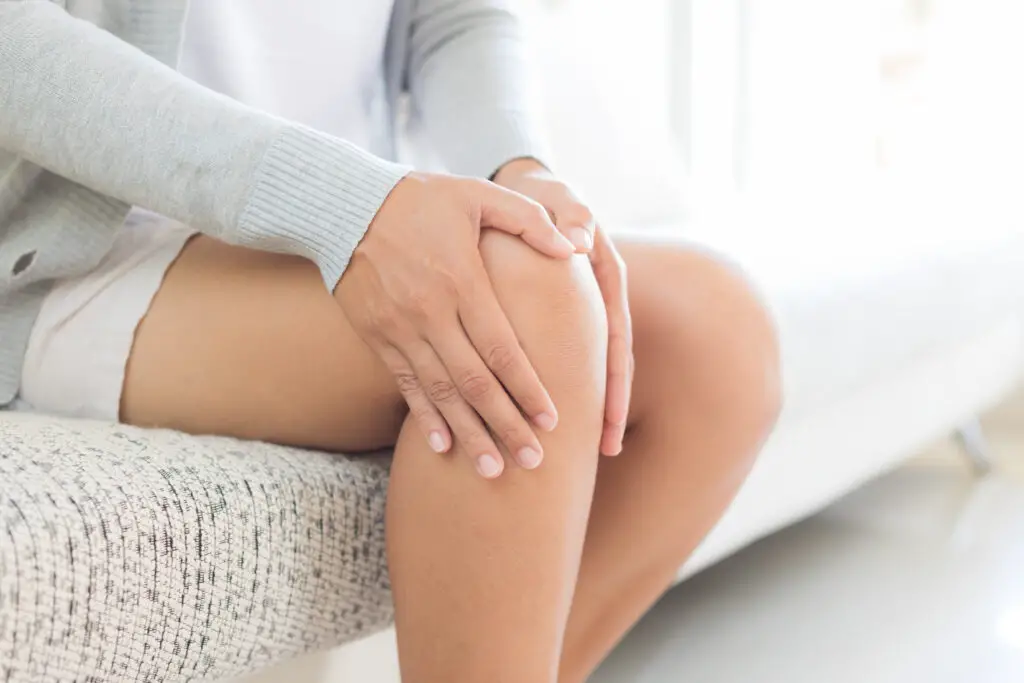
Comments
0